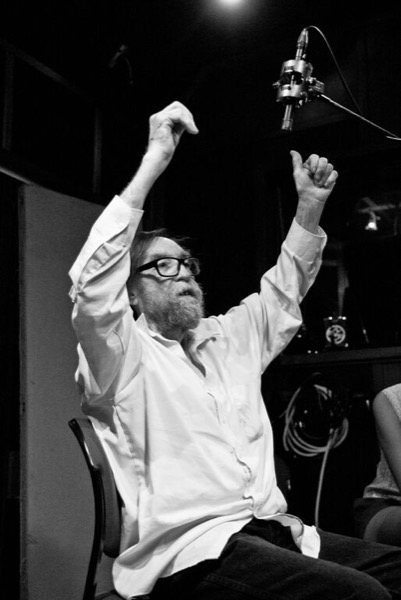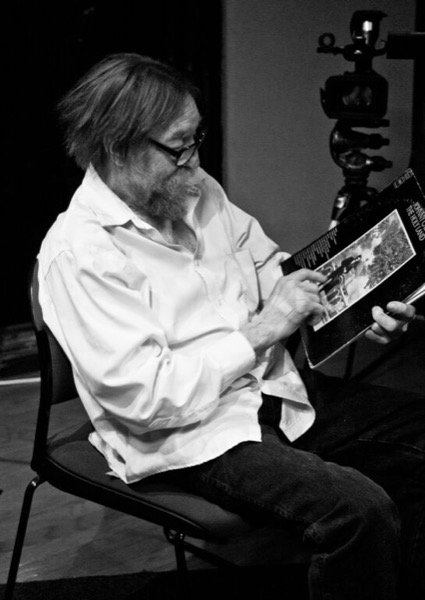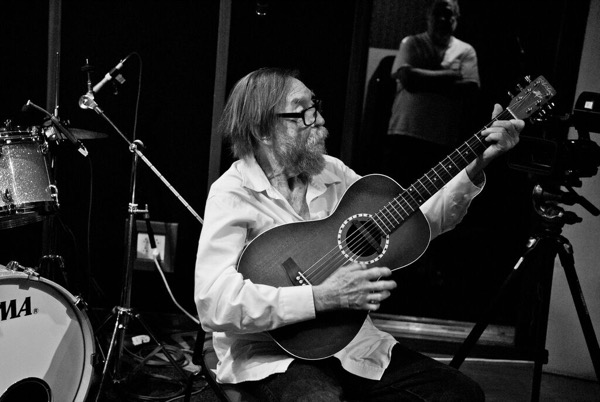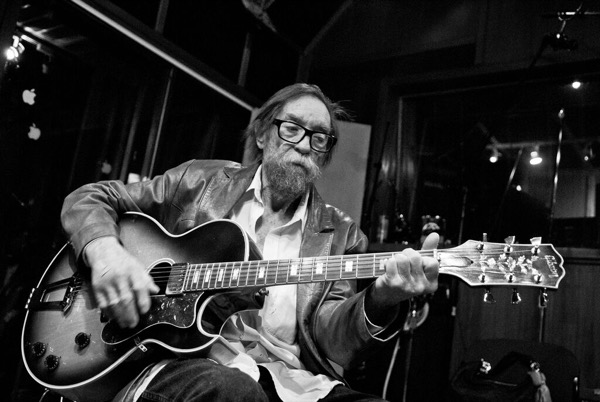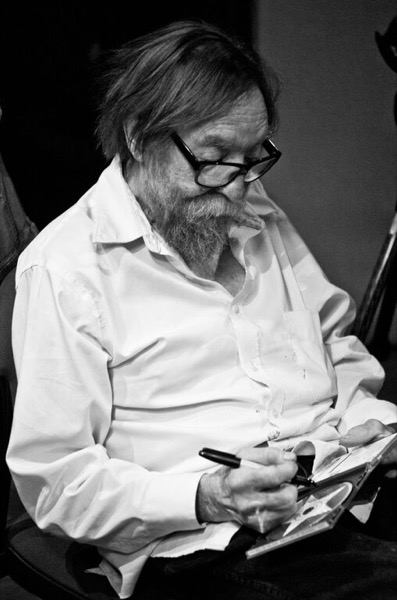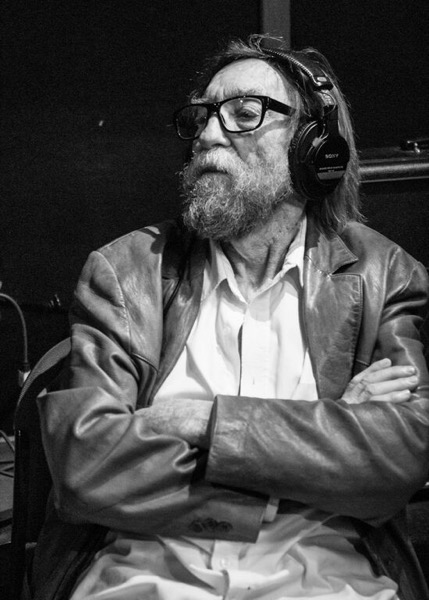Thank you, Marie for posting that-it was extremely interesting. I would like to repost the old interview that Bob gave to the Austin Chronicle a number of years ago. It is no longer on line and this is the only record of it. I'm hoping that by re-posting it, some of the folks who missed it before can see it now.
First We Take Berlin
Bob Johnston's two world tours with Leonard Cohen
BY LOUIS BLACK
http://www.austinchronicle.com/gyrobase ... d%3A561474
Bob Johnston produced two Leonard Cohen albums, 1969's Songs From a Room and 1971's Songs of Love and Hate. What follows is about the two world tours they did together. First they recorded Songs From a Room, and following its release, they embarked on their first world tour together. After they recorded and released Songs of Love and Hate, Cohen's third album, they undertook their second world tour. Grouping the tours together is logical because they mark a change in Johnston's career.
Although Johnston would deny or downplay it, spending so much time away from producing may well have hurt his career. Johnston had been producing albums at a prolific rate, so even a couple of months off would trim his output. He'd already left his executive position at Columbia, but now, during a period in his career when he was red-hot, he was leaving the business for months at a time. Being away from producing and physically away from the New York, Los Angeles, and Nashville axis definitely dented his momentum.
When asked why he stopped working with Dylan, Johnston answers that he's never been exactly sure what happened. Still he does remark that their "governess said Bob Dylan came through here one day, but I was out touring the worldwide with Leonard Cohen, so I don't know whether he wanted to do anything with me or not."
After working together on Songs From a Room, Cohen asked Johnston to put together a band for the world tour. Then Cohen suggested – insisted, actually – that Bob should join the band
"Bob Johnston put the band together for me," Cohen recalled, "and it was a good little band, very modest sound, very modest approach, very nice people. I had a good time. Mostly on Mandrax at this point." (1)
Discographer Martin Strong lays out the chronology: "... the follow-up Songs from A Room ... [was] another opus cloaked in melancholic intensity and an aching sense of loss. ... The record reached No. 2 in Britain and Cohen set off for Europe on an extensive round of touring that included an appearance at the Isle of Wight festival in 1970. Following the release of Songs of Love and Hate (1971) the singer embarked on another sojourn to foreign shores, even playing for Israeli soldiers at various military bases." (2)
Cohen always insisted on giving Johnston full credit for his work with him. Not quite but almost unique among the many artists and albums Johnston produced, when discussing Cohen's albums, reviewers almost always note Johnston's contribution.
"He created a hospitable atmosphere in the studio," Cohen notes. "He is a very forceful and very hospitable man. He wasn't all that naive and all that primitive in terms of what he was doing. Southerners [are] often very deceptive in their personal style. They invite you to think of them as country bumpkins. They're very far from that. Bob Johnston was very sophisticated. His hospitality was extremely refined."
One of Johnston's specialties was bringing in expert sidemen.
"He found very good musicians," Cohen says. "I mean, you were being accompanied by Charlie Daniels and other great players. He knew the scene very, very well. He found the accordion player for 'Partisan Song' and those three girls to put on the overdub. So, his contribution when requested was really quite thorough." (3)
Jason Ankeny noted that, "Somehow even darker and more melancholy than Songs of Leonard Cohen, Songs from a Room is an emotionally claustrophobic set produced with austere beauty by Bob Johnston." (4)
Although Songs From a Room was released March 1969, the tour didn't get under way until August 1970. Earlier that summer the Royal Winnipeg Ballet brought The Shining People of Leonard Cohen to Paris, where it was very well-received. Choreographed by Brian Macdonald, the ballet also featured the reading of several of Cohen's poems.
Europe was ready for Cohen, who was just as ready for the continent, though in a far more perverse way. Seven capitals of European countries were stops on the tour as was the Isle of Wight Festival on Aug. 30, where they played to an audience of 100,000. The last European stop on their first tour was the Olympia in Paris, after which the tour continued on in the States. Cohen was finally warming to his role as a performer.
"I had been out on the road with these Texans and Southern boys," he offers as explanation. "Yeah I was stretching out a bit, having quite a lot of fun out there."
Johnston on Joining Cohen's World Tour
I was touring worldwide with Leonard Cohen. I loved Leonard! He's one of my favorite people in life! I loved Dylan; he's one of my favorite people in life! But I loved Leonard, and it was so much fun.
I ended up on the tour almost by accident. He asked me to manage him; then he asked me to get his band together. Getting ready, I had said to Cohen, "Man, I'll get you the best piano player in the world."
"No, I want you," Leonard insisted
I protested: "I can't play piano. I can bang around, but I can't play, and you've got great musicians here. They're wonderful people."
"Either you come and play, or I won't go" was Cohen's response.
I thought, "Hell, I'm not gonna miss this." So we started off.
I just played piano and guitar and organ, whatever. I couldn't play very well, but he couldn't sing very well.
I did two world tours working and playing with him.
First I got the band together with Ron Cornelius, Elkin "Bubba" Fowler, Aileen Fowler, Corlynn Hanney, and my old friend Charlie Daniels.
The touring group came to be called "the Army." The credits for the album Songs of Love and Hate:
Corlynn Hanney, Susan Mussmano: vocalists
Ron Cornelius: electric guitar, acoustic guitar
Charlie Daniels: acoustic guitar, bass, fiddle
Bubba Fowler: acoustic guitar, bass, banjo
Bob Johnston: piano
Leonard Cohen: acoustic guitar
There are two bands on Live Songs (1973), which was recorded on Cohen's 1970 and 1972 world tours:
1970
Bob Johnston: guitar, harmonica
Ron Cornelius: guitar
Charlie Daniels: electric bass, fiddle
Elkin Fowler: banjo, guitar
Leonard Cohen: acoustic guitar
Aileen Fowler, Corlynn Hanney: vocals
1972
Bob Johnston: organ
Ron Cornelius: acoustic and electric guitar
Peter Marshal: stand-up and electric bass
David O'Connor: acoustic guitar
Leonard Cohen: acoustic guitar
Donna Washburn, Jennifer Warnes: vocals
On Charlie Daniels
Now Charlie is a little bit of a redneck, but Cohen loved him. I found him in 1959 and cut his first record that was a hit on Epic, an instrumental called "Jaguar," and then he wanted to tour, so I got him a touring thing. Then he wanted to come to Nashville, so I moved him to Nashville.
One night he called me, and he said, "Can you get me out of jail?"
I said, "Yeah. Where are you, and why are you in?"
He said, "I'm not yet, but I'm going to be." He went on: "Soon as I finish my gig, I'm going to beat this club owner half to death because I've been had by club owners for the last 25 years, and I refuse to be screwed anymore."
"So," he said, "just come on down to the jail and get me out."
I said, "No need to, Charlie. Go back in there, and tell that guy that you don't work for him anymore; you work for me. And you can have the home out there where it is," you know, instead of me renting it or something like that, "and then you can sign on with me."
He did. He never did a damn thing for two years except practice his guitar out there.
I got a picture of Charlie here. Me and him were in a hurricane in North Carolina down there in Wilmington where he was, and there's this picture of us. Charlie said, "When Bob Johnston brought Dylan to Nashville, it was a beginning of the Nashville horizons."
That's what he said. And then he wrote this thing.
Charlie did very well by himself. Why he even made it up to the White House where he visited with President Carter.
And he wrote this thing for us: "Bob, we shared our cups and toasted our times and rot gut bourbon and fine French wine. Old friend, we been a mile or two together."
That's more important than a fucking gold record hanging on the wall.
On Preparing for the Tour
Getting ready for the world tour, Leonard said, "What do we do?"
I said, "Let me think." Then I got all these people to my house. I had this old piano that used to be in Studio B down there that Patsy Cline and everybody played, that I stole. "Took," excuse me. I thought, English Madrigal. There's nothing that will take the place of Spanish, Italian, English madrigal for his songs.
So I worked up all the arrangements.
We stayed there for two weeks, rehearsed that thing until they were perfect on every note.
On Touring
We opened up in Dublin, Ireland, on Saint Patrick's night in the Guinness Stadium.
The band walked out onstage, the lights were turned low, everybody sat down, and then they looked down at their music stands as they got ready. They all started going [crazy], because I'd taken all their sheet music and destroyed it. Threw it all in the trash can.
They said: "Our charts! Our charts are gone!" I said, "That's too bad now, but you play what you're supposed to play." I didn't want them following a chart. I wanted to instill English madrigal in them, so they'd do it naturally and wouldn't go into rock. They played what they wanted, but they had enough of the other to make that into magic.
We went all over. We ended up in Jerusalem on Independence night. We played Copenhagen – all those places – and the opera house in Vienna.
In Vienna, we finished this major song with a big finish. But nobody would applaud because they wanted to hear every word Leonard said. Leonard looked around, I looked around, and they were all cheering, shit like that, but they wouldn't applaud. Leonard deliberately got them to applaud something, and then they went crazy. That's the way it was with everything.
We toured the world, including the States. Yeah, we played in San Francisco. And they'll never be anything like it. Never was anything like it, never be anything like it, because I didn't give a shit about anything. All these people were friends of mine anyway, friends of Leonard. That's the way that it was.
Cohen Among the Europeans
The reaction to Cohen everywhere was phenomenal. We walked into where we were playing in Hamburg. Leonard was there, and this guy came running down the aisle, gonna shoot him.
In another place, this guy stood up, and he said: "Screw all of that. I don't care about you singing anything! I want to know what you think about me!"
Leonard jumped down off the stage, went and hugged him, said: "Man I love you! I just really love you!"
The guy said, "OK!" And he sat down.
Leonard walked into the Berlin Sports Palace. It was very dark, with a sea of Germans out there. There were dogs barking, lots of candles lit, and general weirdness out there. Cohen walked out on the stage, and there was a 10-minute ovation for him. The band was ready, but Leonard stood there waiting until it finally died down. When it did, he took up the guitar, sat it down in the stand, clicked his heels, and gave a Hitler salute.
The crowd turned ugly: "Damn you! Ugly American!!" They started throwing stuff and cursing.
Charlie Daniels said, "I'm out of here, man!"
"Don't move, or I'll deck your ass," I said, "because if they're gonna shoot, they'll shoot Leonard first."
Finally it died down, and when it died down, I guess they figured, 'Well, hell, if we're not going to kill him, we might as well just listen. Maybe he'll sing later.'
After it had quieted, Cohen got his guitar. He started playing, singing, and went dancing across the stage singing this old Yiddish song. "Hai yai yai," like that, almost like Irish, man. The crowd came roaring back.
Finally, once again after awhile, things calmed down.
I thought, either we'll leave, or he'll sing. Cohen started singing. At the end of it, they wouldn't let him go, naturally. So he's the only one in the world I know that could pull off that kind of stunt.
The World According to Cohen
What was so beautiful was the way Cohen handled things. One time, Marty Machat, my attorney who I had recommended to and hooked up with Leonard, showed up in Copenhagen.
We got there about 11 o'clock. We always fly into a city, eat at the best hotel, in the best restaurant, for two or three hours in the afternoon, then get a little sleep, go wander, whatever you wanted to do before the show.
I remember when we came into Copenhagen, it was about the eighth or ninth place we'd gone. I went to the hotel. Marty came up and said, "You're spending too much of Leonard's money. From now on, all band pays for their own food. No more food off of Leonard. You can eat with Leonard, but no more food for them!"
"Yes sir, whatever you want," I said. "Yes sir!"
He was my attorney; I could tell him to go screw himself! I was managing Leonard. But I said, "Yes sir."
"Are we ready, my friend?" Leonard asked. Meaning, are we all ready to go to dinner. I never will forget it. I said, "No Leonard; I'm going with the band over there and getting some burgers or something, because they don't have very much money."
"What do you mean?" Leonard asked.
I told him, "Marty just walked over, said there wouldn't be anymore eating because those guys are spending too much of your money and all."
"Well, he's got a point there," Cohen answered thoughtfully. Then he quickly called out, "Maître d'! Champagne please!"
Marty walked out of the place, and we all sat down and had a four-hour dinner. That's how Cohen was.
Filming the Tour [Unfinished]
We were filming the tour. [More on this at some later date.]
One time on the tour Cohen decided to give out flowers to the crowd. We were filming this, but we kept losing the film.
One little boy said, "I didn't get no flowers!"
I said, "Yes you did; it's behind your back."
He said, "You caught me."
We took our groceries in, came back out, and took off.
I said, "Boy, that ought to start it off good." And he said, "You find that tape?"
That's the way it was the whole tour: "Did you find that tape?"
Well, I didn't have it. But we still got a movie. CBS and Leonard tried to find it, but it's lost. They lost the movie we made. I found a copy I had taken to the University of Texas, and it's down there now. So I'm gonna tell Leonard, let him edit it like he wants. It's called Bird on a Wire.
Playing Asylums
Leonard wanted to play some mental asylums because he was in the bin one time. We ended up playing four, five, six asylums or something like that.
There was one place – big place – and they rolled all these wheelchairs down: People were "Uuuhhh!" waving and all. They had made a pact: At a certain time they would all piss their pants!
While Leonard's singing, they all do piss their pants. The nurse and interns came and got them and were wheeling them out.
"Uuhh!!" There was screaming and crying. Leonard was trying to get the hospital staff to bring the patients back in, but they wheeled them out anyway.
We played in a place called the Purple Dome room. They had maybe 20 or 30 crazies in there. They locked the doors, and we got in there with our guitars. First song we played was "Marianne," and it will never be played like that again, and we all knew it. The rest of eternity, it would never be played that good. We finish and, "Eerrhh! Eerrhh!!" One guy was scraping his chair up and down.
Leonard said, "Look at that! Look at how they love us!"
We went into the second song. About the 10th song, it was a symphony! Eerrhheerrhh! Bang! Bang!! All of them making different sounds while we were playing! When we got ready to leave, they wouldn't let us, so the interns had to straitjacket a couple people. Finally, we left there.
What a Trip Those World Tours Were ...
Cohen is the best live performer I've ever seen. The most beautiful thing of all, and I know it's selfish, but the best thing to me, over all of it, was ... I played guitar with him. He wanted me to sing with him, so I'd sit down out there on the stage, play organ or something, and I'd go to all of those places all over the world.
The audience was filled with the most beautiful women in the world. The baronesses, the princesses, the models, and all of those like that.
Every place we went, I'd stand there on that microphone and look out. I'd note the women. Don't record that!
One night, there was a blonde out there. I said, "Leonard, look."
"I'm playing guitar," he answered.
"Goddammnit," I said, "Look at her!"
He looked over, said, "Is that her?"
I said yeah. So when the concert was over, she walked by the stage ... [Bob leans over and turns off the tape recorder.]
Footnotes:
1. Ruhlmann, William. "The Stranger Music of Leonard Cohen," p.2, Goldmine, Feb. 19, 1993
2. Strong, Martin C., The Great Rock Discography, Seventh Edition, p.314, New York: Canongate, 2004
3. Ruhlmann, William. "The Stranger Music of Leonard Cohen," p.2, Goldmine, Feb. 19, 1993
4. Ankeny, Jason, All Music Guide to Rock, p.233, San Francisco: Backbeat Books
"Say a prayer for the cowboy..."
User avatar
Joe Way
